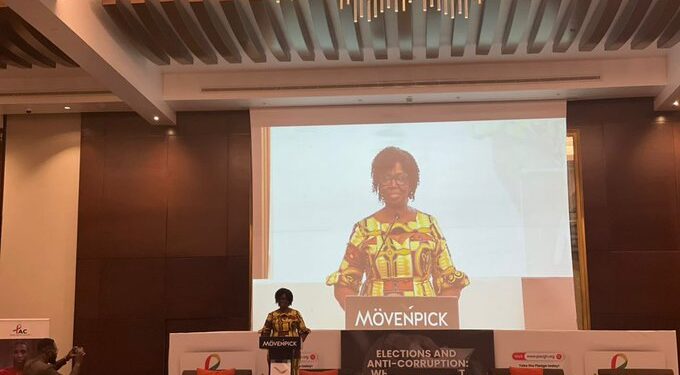Pledge Against Corruption: Organizers Urge Political Parties to Prioritize Anti-Corruption Commitments in Election Agendas
Civil Society Organisations (CSOs) championing the Pledge Against Corruption Campaign have pressed political parties to sharpen their focus on anti-corruption measures in the run-up to the 2024 elections, underscoring the need for robust commitments in party manifestos to address longstanding transparency and accountability concerns.
At the recent “Elections and Anti-Corruption: What is the Next Government’s Agenda” forum held under the Pledge Against Corruption Initiative, Executive Director of the Ghana Anti-Corruption Coalition (GACC), Beauty Emefa Narteh, underscored the need for political parties to embed anti-corruption policies within their manifestos.
Ms Narteh emphasized the coalition’s intent to secure political parties’ commitments to anti-corruption, noting that the stagnation of Ghana’s performance in global corruption indices, particularly the Transparency International Corruption Perceptions Index, signals a lack of progress since 2020.
Highlighting the concerning findings of the IMF’s latest report on Ghana, Ms Narteh stated that while certain governance indicators remain strong compared to regional peers, government effectiveness and regulatory quality have declined over the past decade.
“Weak public accountability and limited citizen participation in policy formation, especially in budget planning and implementation, further compound these challenges,” she said.

Drawing attention to recent data from the 2023 Open Budget Survey, which scored Ghana a low 17 out of 100 for public participation in budgeting, Ms Narteh stressed the urgency of tackling corruption, linking the country’s debt crisis to extensive corruption within the public sector.
“Corruption issues do not feature prominently in election conversations, with only 32 anti-corruption commitments scattered across the major parties’ manifestos,” she noted. Furthermore, only a fraction of these commitments focus on enforcing or deploying existing anti-corruption laws.
The Pledge Against Corruption campaign, driven by the Ghana Integrity Initiative, Natural Resource Governance Institute, Africa Centre for Energy Policy, IMANI Africa, Ghana Anti-Corruption Coalition, and the Foreign, Commonwealth and Development Office (FCDO), aims to accomplish three objectives: raise public awareness of the need to safeguard electoral integrity, promote sustained political accountability, and secure enduring anti-corruption commitments from political leaders.








